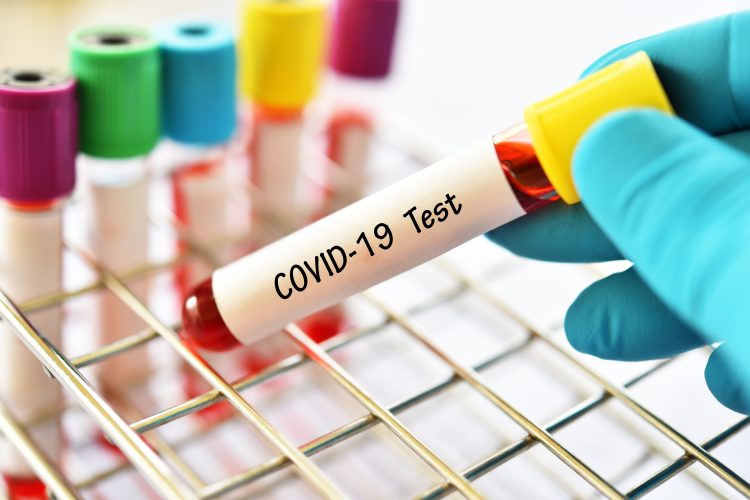Blood test could identify those most at risk from COVID-19
Posted: 22 May 2020 | Hannah Balfour (Drug Target Review) | No comments yet
Collaborative research has revealed two hallmarks of COVID-19 infection associated with more severe symptoms that can be identified by a blood test.


Researchers have identified an ‘immunological signature’ of COVID-19 in the blood of patients, which could be used to identify those at greater risk of severe complications at an early stage of the disease who may need additional care and also guide treatment strategies.
While exploring how the immune system responds to the SARS-CoV-2 coronavirus, responsible for the COVID-19 pandemic, researchers at the Francis Crick Institute, King’s College London and Guy’s and St Thomas’ NHS Foundation Trust identified that patients had an immunological signature from the disease in their blood.
Their preliminary analysis highlighted the 60 patients had two prominent differences from normal blood samples: a dysregulation of a subset of T cells responsible for eradicating virus-infected cells and a dramatic loss of basophils, immune cells involved in tissue repair.
Project lead Adrian Hayday, who heads the Crick’s Immunosurveillance Laboratory and is Professor of Immunobiology at King’s College London, said: “The changes we’ve observed in the blood are not subtle and patients with these features seem more likely to experience severe disease, requiring intensive management.” The team hopes that a high-resolution blood test could be applied in hospitals to help prioritise treatments and identify those at significant risk.
They also suggested the information could be pivotal in developing treatments to overcome COVID-19. Professor Hayday continued: “There’s a lot we still don’t know about this virus, but we have seen that it doesn’t simply discriminate according to age and underlying condition. Although in smaller numbers, younger, healthy individuals can also be struck down with severe symptoms…
“We need to be at a point where clinical treatment decisions can be guided by the state-of-the-art knowledge of the immune system. Indeed, this is why we’re making our data rapidly and freely available so that it can be used across the world by those investigating new avenues for treatment.”
As part of the ongoing study called COVID-IP, patients at Guy’s and St Thomas’ who have agreed to donate to an infectious disease biobank, provide regular blood samples during their treatment for COVID-19. These are processed in secure containment at Guy’s Hospital before the composition and properties of immune cells are analysed in the team’s laboratories at King’s College London and at the Crick.
According to the team the perturbation of specific T cells leaves the patient unable to mount an effective immune response to combat the virus, as this situation persists and worsens, the remaining immune cells can become dysregulated and cause damage to the lungs and other vital organs.
Manu Shankar-Hari, Reader and Consultant in Intensive Care Medicine at King’s College London, consultant in intensive care medicine at Guy’s and St Thomas’ NHS Foundation Trust and NIHR Clinician Scientist, said: “We routinely measure white blood cell counts, including lymphocyte and basophil counts in all hospitalised patients. Clearly, our new COVID-IP study highlights the enormous potential to measure the status of very specific types of immune cell involved in fighting the virus.
“Moreover, the study’s identification of detailed T cell deficits offers strong support for an international clinical trial in which we provide patients with recombinant IL-7, a natural drug that promotes T cell function. The trial has been designated an Urgent Public Health COVID-19 Trial by the Chief Medical Officer.”
Related topics
Analysis, Disease research, Drug Targets, Immunology, Screening, t-cells
Related conditions
Coronavirus, Covid-19
Related organisations
Francis Crick Institute, Guy's and St Thomas' NHS Foundation Trust, Guy’s Hospital, King's College London
Related people
Manu Shankar-Hari, Professor Adrian Hayday


